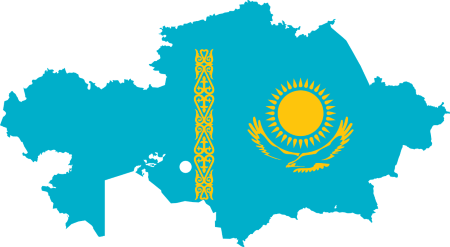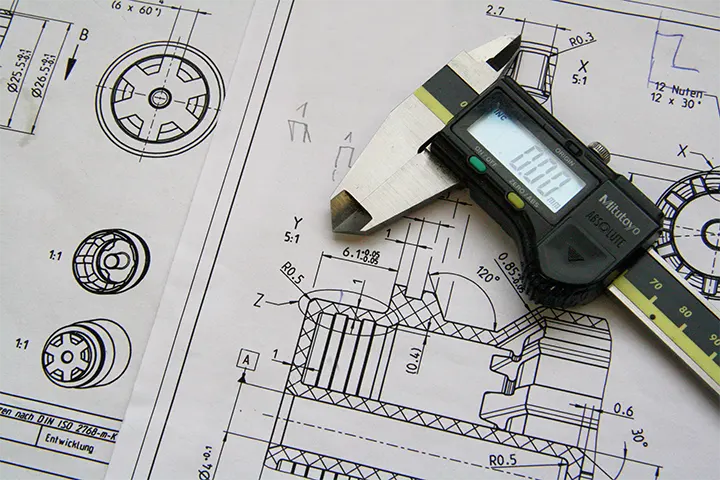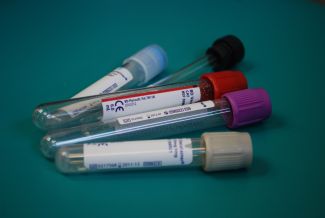
In Kazakhstan, similar as in Russia and Belarus there are national technical regulations besides the technical regulations of the Eurasian Union.
For certain products no uniform technical regulations have yet been developed on the level of common regulations of the EAEU. Conformity of such products is guaranteed by the national technical regulations.
There are the following national technical regulations in Kazakhstan:
- Requirements for emissions into the environment from burning different types of fuel in boiler systems of thermal power plants - since December 14, 2007
- Requirements for the safety of paints, varnishes and solvents - since December 29, 2007
- Requirements for feed and feed additives - since March 18, 2008Requirements for the safety of synthetic detergents and household chemicals - since March 4, 2008
- Requirements for the safety of drugs and biological products in veterinary medicine - since April 23, 2008
- Pesticide Safety Requirements - since May 29, 2008
- Requirements for the safety of buildings and structures made of concrete and reinforced concrete - since December 22, 2008
- Requirements for the safety of wooden structures - since December 26, 2008
- General requirements for fire protection - since June 23, 2017
- Safety requirements for constructions made of other materials - since December 31, 2008
- Safety requirements for metal structures - since December 31, 2008
- Requirements for emissions to the environment in the production of ferro-alloys - since January 26, 2009
- Requirements for fertilizers - since May 28, 2010
- Nuclear and radiation protection of nuclear facilities for the purpose of research - since February 20, 2017
- Requirements for the safety of coal and its products during extraction, processing, storage and transport - since July 17, 2010
- Safety requirements for toxic and highly toxic substances - since November 19, 2010
- Requirements for the safety of bioethanol - since February 24, 2011
- Requirements for the safety of biodiesel - since February 10, 2011
Legal framework
Conformity assessment is regulated by law:
- Law of the Republic of Kazakhstan "On Technical Regulation" of November 9, 2004 No. 603-II;
- Technical regulation "On conformity assessment procedures" (Decree No. 90 of the Government of the Republic of Kazakhstan of February 4, 2008)
- other standards and regulations
Conformity assessment procedure
There are two forms of Conformity assessment according to the technical regulations of Kazakhstan:
- Certificate GOST-K*
- Declaration GOST-K*
* GOST-K is called so colloquially in order to distinct between EAC certificates and certificates according to national standards.
The aim of the obligatory confirmation of conformity is to chack and prove that the products comply with the requirements of the relevant technical regulations. This ensures the safety of the product for human life and health, environmental protection and the prevention of actions, and protects the consumer from being misled about quality and safety.
The certificates and declarations issued under the national legislation of the Republic of Kazakhstan are only valid in Kazakhstan. The technical regulations of the Eurasian Economic Union apply to the majority of products.
In addition to a mandatory certificate, there is a voluntary certification. Products that are not subject to any technical regulations of Kazakhstan or the Eurasian Union can confirm their quality with a voluntary certificate.
Reform of the Technical Regulation within the Customs Union and EAEU

As a consequence of the coordination of national safety standards between Russia, Belarus and Kazakhstan, the previous national Technical Regulations such as Russian GOST and TR certification were gradually phased out and substituted by the new Technical Regulations of the EAEU (TR EAEU) in every industrial sector. In addition to the EAC certification, the EAC declarartion has also been introduced in the Customs Union as a simpler and less expensive form of proof of conformity.
The new system was modelled on the european CE marking and many Technical Regulations are coordinated with EU guidelines. One can say that the Technical Regulations of the Customs Union correspond to the EU guidelines.
Schemes of the conformity assessment procedures
The GOST-K certificate or the GOST-K declaration can be issued for series production, single delivery or batch delivery. The scheme of the conformity assessment procedure depends on this. The scheme is determined by the applicant together with the conformity certification body.
Period of validity
The certificate is issued for a maximum of three years. The declaration is valid for one year.
Conformity mark

Products that have confirmed their conformity with the technical regulations of Kazakhstan must be marked with a conformity mark.
Products that have confirmed their quality and safety as part of voluntary certification are also marked with a conformity mark.
Required documents:

- instruction manual
- test reports
- data sheet
- technical documentation
- a copy of certificate of conformity
- a copy of certificate from quality management system
- reports of manufacturing audit for series production
- a supply contract and shipping documents
Certification duration and costs
The duration and costs of certification depend on various factors, such as the type of goods, the need for laboratory tests and the complexity of general tests. The exact conditions of the certification are always determined individually on the basis of the required documents.
Applying for a certificate can take from a few days to weeks.
Delivery of the documents
If you order an EAC certificate, you will receive a copy of it via email immediately upon our successful completion of the EAC certification process. The original will be mailed to you a few days later.



















































